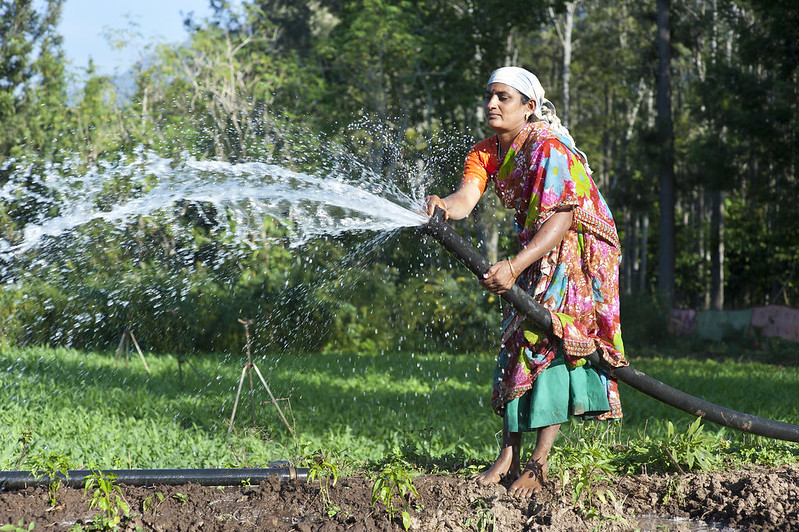Resource information
Land ownership has long been argued to enhance farm productivity by improving tenure security. But would this hold for female and male owners alike? The relationship between land ownership and productivity has been investigated relatively little from a gender perspective in most regions, with work on Asia being especially sparse. Even less explored are gender differences in the likelihood of landowners self-cultivating as vs. leasing out their land. This paper uses a unique household-level dataset for nine states of India to first assess gender differences in the likelihood of landowners self-cultivating or renting out their land. It then analyses differences in farm productivity between female and male owners who self-cultivate. The effect of caste disadvantage is also explored. We find that women owners are significantly less likely than male owners to self-cultivate their land. This is linked especially to family labour constraints and regional opportunities. However, among those who do self-cultivate, the annual farm productivity per hectare does not differ significantly by the gender of the owner-cultivator. This holds true with or without controlling for other factors. Caste matters, however: Scheduled Caste owner-cultivators of both genders have significantly lower productivity than upper-caste ones.

